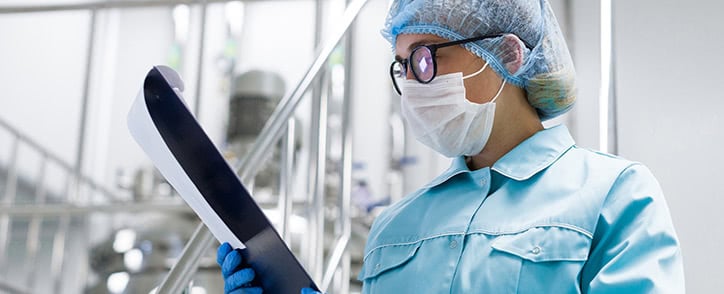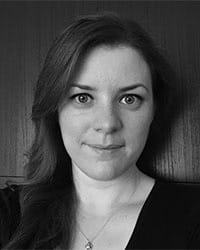What is a CQV (Commission, Qualification and Validation) Engineer? What do they do?
By: Donagh Fitzgerald B.Prod Eng and Claire Wilson BSc. Last Updated: July 2024

A CQV Engineer makes sure that all systems, facilities and equipment are installed properly and meet the design requirements put in place for the end-users in a pharmaceutical facility. They document the process of installation, operation and how it performs. CQV is focused on the performance of equipment.
This specific validation role will have a strong focus on commissioning and qualification of equipment and systems.
Some companies might call this role:
- C&Q Engineer
- CQV Specialist
- Validation Specialist
What is Commissioning Qualification and Validation?
Commissioning – is a systematic approach to the start-up of a manufacturing system and covers all aspects of bringing a system or subsystem to a position where it is regarded as being ready for use in pharmaceutical (and other) manufacturing.
Commissioning verifies that what was specified was installed, that it functions properly and that it was successfully turned over to the user. The primary focus is placed on satisfying engineering requirements for the facility, defined earlier in the project.
Qualification – Qualification extends beyond commissioning and is the action of proving that the facility, systems and equipment that have a direct impact on product quality and patient safety are correctly installed, work as expected and are fit for the intended use.
While commissioning can be viewed as primarily an engineering test and applies to all of the equipment in a manufacturing facility, qualification only applies to systems and equipment that have a direct or indirect impact on the quality of the product and patient safety.
These systems and equipment will be focused on by the regulatory authorities when they come to approve the medicines that are being manufactured in that facility.
Validation – is a broader term and describes the process of creating an evidence trail to show that an action, process or system leads to a consistent and reproducible result. There are many other definitions of validation but the essence of all these definitions seems to be “documented scientific proof of consistent performance“.
Validation is a central part of the manufacturing process within the pharmaceutical and medical device industries. The products made must be exactly the same every time and are tested at the end of the production process to ensure that this is the case but final end-product testing isn’t enough.
In addition, the processes, systems, and equipment that lead to their manufacture are closely scrutinized too. This establishes that they meet predetermined specifications and always produce the same result.
What Are Examples of CQV Regulation and Guidelines?
Whether you are building a brand new facility or modifying and existing plant, CQV practices are informed by a number of industry and regulatory guidelines such as:
- Annex 15: Qualification and Validation EU Guidelines
- U.S. FDA Process Validation: General Principles and Practices
- ISPE Baseline Guide 5 Commissioning and Qualification (Second Edition)
- ICH Q8) Pharmaceutical development
- ICH Q9 Quality Risk Management
- ICH Q10 Pharmaceutical quality system
- ASTM E 2500 “Standard Guide for Specification, Design, and Verification of Pharmaceutical and Biopharmaceutical Manufacturing Systems and Equipment”
What Does a CQV Engineer do?
A CQV Engineer will work on the initial commissioning and qualification of equipment and equipment systems to ensure they are installed correctly and are fit for purpose. This still involves a large amount of documentation.
The specific tasks required by an individual will vary depending on the project. Examples of tasks could include:
- Commissioning and qualification of equipment and systems.
- Preparation and execution of IQ OQ PQ qualification protocols of equipment, instruments and piping systems, along with automation controls and building facilities.
- Performs and conducts P&ID walk-downs and verification of system drawings as required.
- Writes, reviews and revises a variety of installation, operation and performance qualification documents such as:
- SOPs
- validation/verification master plans, guidelines and execution plans
- commissioning, qualification or other technical documents
- user requirement specifications (URS
- functional requirement specifications (FRS)
- detailed design specifications
- factory acceptance test documents (FAT)
- site acceptance test documents (SAT)
- equipment validation protocols, verification protocols, and/or commissioning test procedures
- Conducts design review (DR) and design qualification (DQ) protocol preparation, execution and follow-up.
- Writes reports to summarize validation/verification/commissioning and/or revalidation/verification/commissioning activities.
- Writes procedures, investigations, protocols, reports change controls, etc. to support the maintenance and engineering departments.
- Investigating abnormal testing results.
- Troubleshooting validation problems.
- Participate in internal audits and external inspections as required.
- Maintain validation documentation through the validation lifecycle.
Where do CQV Engineers work?
Pharmaceutical Companies – make medicines on an industrial scale. Most CQV Engineers in pharmaceutical companies focus more on ongoing small internal projects and on occasional large capital projects.
Pharmaceutical companies offer well-paid roles with excellent career prospects and a clear path to senior-level positions. This environment prizes stability and continuity so the pace of change is generally slower than in other sectors.
Engineering Consultancies – design, and manage (teams of different contractors) to build, commission and qualify a new manufacturing plant. CQV Engineers working for engineering consultancies will typically work within a project team on large, capital projects.
The working environment is more fluid and dynamic compared to the pharma sector. The working hours are fixed but there may be opportunities for overtime. The work is varied and you may be spending up to 30% of your time travelling depending on your role.
Engineering Contractors – are companies that physically build the plant, not manage the build as in the case of engineering consultancies. You may be part of an engineering contracting company or a one-person operation working on short-term contracts.
Like engineering consultancies, you would be more likely to work on large-scale capital projects. Your working environment is highly dynamic and fluid and you may have to move from project to project and your long-term work schedule will be far less predictable.
This type of validation role can bring a higher salary than working directly for a pharmaceutical company or an engineering consultancy as there is often a lot of overtime associated with it but you must balance that against the fact that you have limited job security.
Check out this post on “Working for Pharma Company vs Engineering Consultancy or Engineering Contractor – Pros and Cons” for a more detailed explanation.
Becoming a CQV Engineer
There is currently an acute shortage of validation skills in the industry so it could be a great time to consider a mid-career change into validation.
To become a validation professional, a Bachelor’s degree usually in a lab/science (biochemistry, microbiology, laboratory science) or engineering (mechanical, petroleum, process, structural, chemical or something similar) is the typical requirement but this is not always the case.
A lower-level qualification with accompanying relevant work experience especially if it involves interpreting technical drawings can be absolutely realistic alternative.
If interested, check out our Equipment Validation (IQ OQ PQ) Training Course – For Starter Validation, CQV and C&Q Roles.
What Skills Do I Need?
The ideal skill set for someone moving into validation includes:
- Strong Documentation Bias – as you will be managing and documenting the entire validation process
- Attention to detail – it is vital that CQV Engineers follow validation protocols precisely to ensure that the results are reliable
- Enthusiasm for working in a Team – validation of equipment systems is a team activity and you will need good verbal and listening skills to share information amongst the team members
- A structured approach to working – your work will impact others in the overall validation team as there will be many documents that require sharing and signing with multiple team members
- Good communication skills – Must be able to take and understand instruction well, putting them into action quickly and effectively
- Mathematics – gathering, interpreting and reporting on numbers is a significant part of the role
- Computer skills – there is a lot of organization and interpretation of data required, computer skills are essential
- Time management – there is a timeline of testing that needs to be followed
- Initiative – CQV Engineers need to be able to think on their feet and come up with new and inventive ways to fix problems
- Strong problem-solving skills – ideally using risk management tools such as – FTA), FMEA / FMEAC), PHA), HAZOP, etc
- Good technical knowledge – of pharma/biopharma manufacturing techniques and procedures.
- An understanding of pharmaceutical industry regulatory requirements.
- Knowledge of the plant equipment including API vessels, reactors, pumps, heat exchangers, piping, flow transmitters, temperature transmitters, etc
For more information on skills, check out this article where we analysed validation job adverts to discover the 8 most “in demand” skills for validation professionals.
What is the Typical Career Path?
A typical career path would be to start in an entry-level position within a Validation Team. As you build up experience and are given more responsibility, you will move up in seniority within the team. The most senior positions are Head of Validation roles where your responsibilities would evolve to planning the overall validation strategy, developing the Validation Master Plan and managing the team.
Check out this post on “Working for Pharma Company vs Engineering Consultancy or Engineering Contractor – Pros and Cons” for a more detailed explanation.
What is the Salary for a CQV Engineer?
CQV Engineers for an engineering consultancy or as contractors tend to be well paid. The latter can receive even higher compensation but has less job security.
Job growth has been exceptionally strong over the last 5 years. Typical salaries can vary hugely as there is a lot of overtime associated with the role.
Visit our Validation Salaries and Job Descriptions page to see details on salaries for CQV Engineers.
What is the Salary for a CQV Engineer?
CVQ Engineers working for an engineering consultancy or as contractors tend to be well paid. The latter can receive even higher compensation but has less job security.
Job growth has been exceptionally strong over the last 5 years. Typical salaries ranges can be found below but overall earnings could much much higher as there can be a lot of overtime associated with the role.
- Starting Salary: $60K
- After 2 Years: $75K
- After 5 Years: $95K++
Visit our Validation Salaries and Job Descriptions page to see details on salaries for Validation Engineers and Validation Technicians.
Retrain to Become a CQV Engineer
If you have work experience in areas such as;
- You are a plumber/pipefitter/pipe welder (e.g. high purity pipe fitter and orbital welder) / site-foreman / instrument technician (i.e. you can interpret technical drawings, especially P&IDs and pipe skids).
Or - You have 1 year or more of GMP manufacturing experience or have a recognized GMP qualification.
Or - You have commissioning & qualification experience in ANY INDUSTRY e.g. Oil and Gas, Food Manufacturing, etc.
Or - You work in Quality Assurance or Quality Control in the pharma/medtech industry and are worried about having to sign off on validation documents you don’t fully understand!
Or - You are a chemical / process / petroleum / project / mechanical, etc engineer.
Or - You already work in validation (e.g. mechanical contracting company carrying out high-purity pipework installations) but have no formal training on IQ OQ PQ equipment validation protocols.
Check out our Equipment Validation Training Course – For starter validation, CQV and C&Q roles for positions such as:
- Validation Technician – Some pharma companies call this role:
- Associate QA Validation Specialist
- Equipment Validation Specialist
- QA Validation Associate
- QA Validation Specialist
- CQV Engineer – Some pharma or engineering consultancies companies call this role:
- CQV Specialist
- C&Q Specialist
- C&Q Junior Project Manager
If you want to see more about the number and kinds of jobs that are available, check out our jobs boards for Ireland, and the UK and select Validation from the “Jobs by Category” menu.
Other Validation & Quality Roles in Pharma
About the Author
Donagh Fitzgerald
Head of Marketing & Product Development
Mechanical/Production Engineer
Donagh looks after the marketing and product development including the training and pedagogical elements of our programs and makes sure that all GetReskilled’s users can have a great online learning experience. Donagh has lived and worked in many countries including Ireland, America, the UK, Singapore, Hong Kong and Japan. Donagh has also served as the Program Manager for the Farmleigh Fellowship based out of Singapore.
Donagh holds Degrees in Production Engineering and Mechanical Engineering from South East Technological University, Ireland.
Claire Wilson
Content Marketing and Career Coaching
Claire runs GetReskilled’s Advanced Career Coaching Programme – our specially devised job hunting course that helps our trainees take that final step into employment by leading them through the job hunting process. She is extremely enthusiastic about helping people reach their final goal of employment in their new career path.
Claire has a BSc (Hons) in Medical Biology from Edinburgh University and spent 7 years working in the pharmaceutical and medical device industries.

